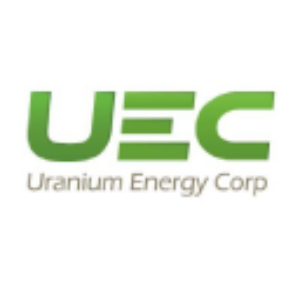State Street Reports 5.3% Beneficial Stake in Uranium Energy (UEC)
Rhea-AI Filing Summary
Uranium Energy Corp disclosed that State Street Corporation beneficially owns 23,461,520 shares of its common stock, representing 5.3% of the class. The filing shows no sole voting or dispositive power; instead State Street reports 21,595,718 shared voting and 23,461,520 shared dispositive rights. Several State Street affiliates are identified as relevant subsidiaries holding the securities on behalf of clients, including SSGA Funds Management and various State Street Global Advisors entities. The filer certifies these holdings are held in the ordinary course of business and are not intended to change or influence control of the issuer.
Positive
- Beneficial ownership of 23,461,520 shares reported (clear numerical disclosure)
- Stake equals 5.3% of the class, exceeding the 5% disclosure threshold
- Filing states holdings are held in the ordinary course and not to influence control
- Clear breakdown of voting and dispositive power (shared voting: 21,595,718; shared dispositive: 23,461,520)
- Identifies relevant State Street subsidiaries managing the positions
Negative
- None.
Insights
TL;DR: State Street reports a passive 5.3% beneficial stake with shared voting/dispositive power; material for disclosure but not control.
The Schedule 13G shows State Street beneficially owns 23,461,520 shares of Uranium Energy Corp (5.3% of the class). All powers are reported as shared rather than sole, with 21,595,718 shared voting and 23,461,520 shared dispositive rights. The filing explicitly states the position is held in the ordinary course of business and not to influence control. For investors, this is a notable disclosure of concentration but, per the filer, does not signal an active attempt to change governance.
TL;DR: No sole control reported; multiple State Street affiliates are named as holders; governance influence appears limited per the filing.
The report identifies several State Street subsidiaries (for example, SSGA Funds Management and State Street Bank and Trust Company) as relevant holders, indicating custody and advisory structures. The absence of sole voting or dispositive power and the certification that securities are held in the ordinary course suggest limited direct governance intent. This disclosure provides transparency about ownership concentrations and the parties through which holdings are managed.







